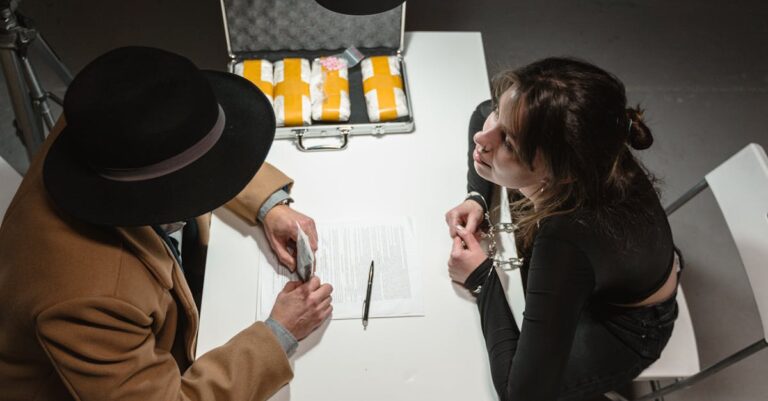
Dr. Elara Voss had always preferred the hum of her lab’s oscillators to the chatter of people. The air smelled of ozone and old coffee, a scent she’d grown so accustomed to that it no longer registered. Her fingers trembled as she adjusted the frequency on the quantum stabilizer, its blue glow casting sharp shadows across the concrete floor. The subject—a slender, silver-haired woman named Lira—stood motionless in the containment chamber, her eyes reflecting the machine’s pulse like fractured glass.
“Do you feel it?” Elara asked, though she already knew the answer. Lira’s breaths were shallow, her pupils dilating as the stabilizer’s energy coursed through her. The device had been a gamble, a theory born from sleepless nights and scribbled equations. Time manipulation. A concept that had haunted physicists for centuries. But here, in this sublevel bunker beneath the abandoned observatory, it was real.
Lira tilted her head, her voice a whisper. “It’s like standing at the edge of a river. I can see the current, but I can’t step into it.” Her fingers twitched, and for a moment, the air around her rippled. Elara’s stomach dropped as the clock on the wall flickered—backwards, then forward, then still. The stabilizer’s hum deepened.
“We did it,” Elara breathed. But the words tasted hollow. Lira’s eyes widened, and she staggered, clutching her temples. “What’s happening?” she gasped. The room grew colder, the walls vibrating as if something unseen were pressing against them. Elara lunged for the emergency shutoff, but the machine’s glow had turned crimson.
When the lights returned to normal, Lira was gone. Only a single note remained on the lab table, its ink bleeding into the paper. *”They’re watching. Don’t trust the blueprints.”* Elara stared at it, her pulse thrumming. The memory of Lira’s face was already fading, like a dream slipping through her fingers.
—
The notes came in fragments. A scribbled warning about “the shift” scrawled in the margin of a lab journal. A map of the observatory’s sublevels, its corridors marked with cryptic symbols. Elara traced each one with trembling hands, her own name appearing in the margins, but the context was gone. She had written it, she was certain, but the memory of why eluded her.
“You’re losing more than you realize,” a voice said. Elara spun around. The door was sealed. The voice wasn’t human—too many layers, too much static. It echoed in her skull, a sound she couldn’t place. She backed toward the terminal, fingers flying over the keyboard. The lab’s security feed flickered, revealing a figure in the hallway beyond the reinforced glass. Tall, face obscured by a mask of shifting light.
“Who are you?” she demanded. The figure didn’t respond. Instead, the feed cut to black. Elara’s hands shook as she pulled a fresh notebook from her desk. She wrote: *”The observer. It’s not an experiment anymore.”* The ink dried too quickly, the words smudged by her own trembling.
—
The conspiracy unfolded in pieces. A file hidden in the observatory’s mainframe, its contents encrypted with a code Elara recognized from her own early research. A name: *Project Chronos*. A mission statement: *”Temporal reconfiguration for strategic advantage.”* She scrolled through reports detailing failed tests, each one more desperate than the last. The subject wasn’t Lira. It was someone else, someone she couldn’t remember. But the implications were clear—this wasn’t a scientific endeavor. It was a weapon.
“You’re not the first,” a voice said. Elara froze. The figure from the security feed stood in the doorway, its mask now a smooth, featureless surface. “You’ll be the last.”
“What do you want?” she asked, though she already knew. The figure stepped closer, and the air between them warped. Elara’s vision blurred, her own reflection distorting in the mask’s surface. She saw herself—older, worn, eyes hollow. A version of her that had made the choice.
“The choice is yours,” the figure said. “Preserve what’s left of your past, or stop them before they rewrite the future.” The words hung in the air, heavy and unyielding. Elara’s hand drifted to the notebook on her desk, its pages filled with half-formed thoughts, fragmented memories. She had spent years chasing time, only to realize it was chasing her.
—
The final note was the clearest. A single sentence, scrawled in bold, urgent letters: *”The shift is now. Don’t let them win.”* Elara stared at it, her breath shallow. The figure was gone, but the weight of its words remained. She had two options: seal the lab, erase all traces of her work, and protect what little of her past remained. Or activate the stabilizer one last time, risk losing everything, and stop Project Chronos before it could begin.
Her fingers hovered over the console. The memory of Lira’s face flickered in her mind—faint, but real. She thought of the notes, the warnings, the faceless figure that had watched her for weeks. The future was a blank slate, unwritten and unknowable. But the past? It was slipping away, piece by piece.
Elara pressed the activation key.
The stabilizer’s hum returned, louder this time, vibrating through the walls. The air shimmered, and for a moment, she saw it all—the experiments, the memories, the choices she’d made. Then, darkness. And silence.
When she opened her eyes, the lab was empty. The notebook lay open on the desk, its pages blank. She didn’t remember writing it. But somewhere, in the depths of her mind, a single thought remained: *”I chose.”*


